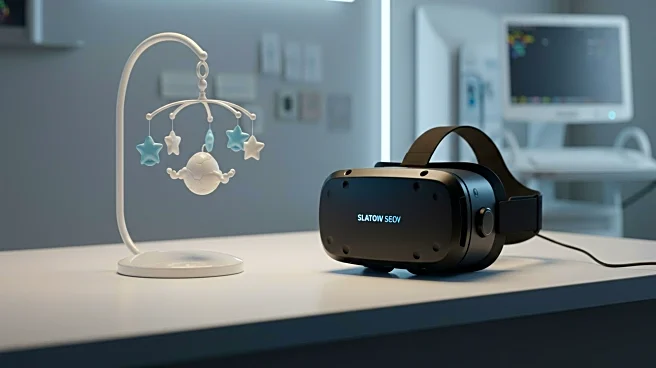What's Happening?
A pilot study conducted in Vietnam has demonstrated the feasibility of using virtual reality (VR) for neonatal resuscitation training. The study involved healthcare professionals engaging in VR simulations to practice critical interventions on a simulated 30-week neonate. Participants reported high satisfaction with the VR training, noting its realism compared to traditional methods. The study highlighted the adaptability of VR training across diverse healthcare environments and emphasized its potential to enhance team dynamics in neonatal resuscitation.
Why It's Important?
The use of VR in medical training offers an immersive learning environment that can improve skill acquisition and team coordination. This approach is particularly beneficial in resource-constrained settings where access to high-fidelity manikins is limited. The study's findings suggest that VR-based training can bridge gaps in training quality and prepare healthcare professionals for real-world clinical scenarios. As VR technology becomes more accessible, it could revolutionize medical education and training, leading to improved patient outcomes.
Beyond the Headlines
The study also identified challenges such as language barriers and technical infrastructure issues, which need to be addressed for broader implementation. The psychological impact of VR training, including cybersickness, was noted, highlighting the need for mitigation strategies. Future research should explore the integration of emerging technologies like artificial intelligence to enhance VR training's adaptability and effectiveness.











